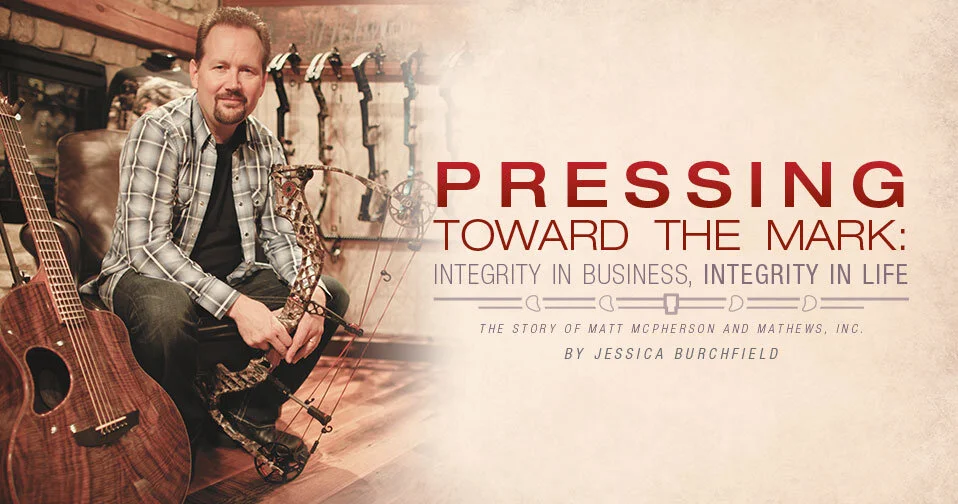Sustaining Business as a Ministry (BAAM) in Perpetuity
This is one of the 2020 CEF Whitepapers. For more information on the Christian Economic Forum, please visit their website here.
— by Brandt Brereton
Role of BaaMs in the United States
Approximately 2,000 private businesses in the United States are currently owned by committed Christians who provide varying levels of support for domestic and international ministry and missions within and outside the company. Because most of these business owners believe that God is the actual owner and that they are merely stewards, the title of Businesses as a Ministry (BaaM) has been adopted to characterize them. The profits of these companies fuel giving to the Kingdom both directly and through owner tithing to local churches and mission budgets. BaaM owners are stewards that view the operation, culture, and rich ministry within and through the business as something to be preserved.
The owners of BaaMs face unique financial difficulties as they manage their business because of the importance of maintaining owner control in order to continue ministry support both during and after their involvement in the business. The provision of shareholder liquidity and funding the retirement of owners is complicated by the difficulty in obtaining capital from traditional sources because of a portion of profits being diverted to ministry support both inside and outside of the company. BaaMs require access to a type of capital that does not require them to give up control of their business.
Private Equity Acquisition Trend
Of the approximately 100,000 companies in America that employ at least 100 employees, it is estimated that an average of 4,000 of these companies have been acquired each year by private equity firms since the early 1990s. It is reasonable to infer from these numbers that 30% to 40% of private companies with at least 100 employees are now owned by secular private equity firms focused exclusively on profit. This trend will continue for demographic reasons as Baby Boomer private business owners reach retirement age.
Owners of private businesses who want to liquidate all or a part-interest in their company typically sell to a private equity firm. This prevalent practice is a consequence of one of two unfortunate situations. The first is that the typical owner and management team are not aware of any alternative means of obtaining significant liquidity while maintaining control of the company. The second is that most of the outside financial and legal advisors providing guidance to management are typically not familiar with any alternative to a business sale to a third-party private equity firm or strategic industry buyer.
Liquidity Options for Business Owners
When a business that allocates a portion of profits to ministry support (BaaM) is acquired by a private equity firm or industry buyer, the diversion of a portion of profit to ministry support will be immediately terminated as will any ministry occurring for employees within the organization.
There is an urgent need for private business owners to be made aware of an alternative to the prevalent practice of selling a business to private equity firms or industry buyers in order to obtain the liquidity necessary to fund the retirement of owners. This alternative liquidity option would provide the following advantages:
Fund the retirement / major liquidity distributions for owners
Enable continuation / succession of owner control of the company
Permit the diversion of significant profit for charitable purposes
Facilitate beneficial employee stock ownership without cost to employee
Enable permanent reduction or elimination of corporate level taxes
In addition to the above benefits, significant personal tax advantages would be available to cover costs of implementing and taking advantage of such an alternative.
Inception of the Employment Stock Ownership Plan
The employee stock ownership plan (ESOP), also alternatively known as the employee share ownership trust (ESOT), was conceived in 1956 by Louis Kelso, a San Francisco attorney and investment banker. A book written by Louis Kelso and the author and philosopher Mortimer Adler, and published in 1958, The Capitalist Manifesto, explained the macro-economic theory upon which the ESOP initiative was based.
The thesis of the book is that democracy is the only method of government worthy for human beings and that capitalism is the only system that can sustain democracy, because only in the possession of the means of production can a person be truly free. The authors also wrote (over 60 years ago!) that we faced a real and present danger from the progressive socialization of our economy. They recommended that tax policy should be implemented to encourage beneficial ownership of stock by employees to supplement their income and preserve our capitalist system.
As a consequence of the work by Louis Kelso for nearly two decades, his proposals were finally incorporated into a major reform of retirement law known as ERISA (Employee Retirement Income Security Act of 1974). Among the beneficial provisions are the following:
ESOP-owned companies receive tax deductions for payments to employees
Employees receive beneficial stock ownership at no cost
ESOP trusts could borrow money to buy company stock
Loans can be repaid out of tax-deductible corporate contributions
Deferral or elimination of capital gains for certain sellers of stock to ESOP
National Center for Employee Ownership (NCEO)
The National Center for Employee Ownership (NCEO) – a private non-profit membership-based information and research organization – was founded in 1981 by Corey Rosen, who had worked as a professional staffer in the U.S. Senate where he helped draft ESOP legislation. The purpose of the organization is to educate business owners on employee stock ownership and managers of ESOP-owned companies on measurement and improvement of their ownership cultures. NCEO also produces publications and ESOP sample documents for the benefit of their membership.
The ESOP Playbook
In 2017, my partner, Jared Hanley, and I wrote and published the ESOP Playbook. Jared and I are the two principals of Brereton Hanley, a boutique investment bank in Silicon Valley. Our objective in writing was to utilize our extensive experience in advising companies for more than two decades regarding ESOPs to accomplish two purposes. The first was to explain what an ESOP is and how a typical sale to an ESOP is conducted. The second was to provide an introduction to the many tools and alternatives that an ESOP can provide to a business. Because business owners can sell even 100% of their shares and still retain control of the company indefinitely, our hope is that this expertise can be taught and focused on the attrition of BaaMs problem.
A unique and very helpful feature of the book is the comparative analysis of the three most common corporate finance transactions: (1) the M&A (industry buyer) sale, (2) the Private Equity sale, and (3) the ESOP sale. For each type of transaction, the process is described, the parties and their agendas are discussed, and the pros and cons of the respective finance transaction types are enumerated. The parties covered for each transaction type are sellers, buyers, attorneys, CPAs, investment bankers, and employees.
Emergence of Perpetuate Capital
My partner and I recently joined a team of Christian entrepreneurs forming an investment fund organization (Perpetuate Capital) to provide a market-based source of capital to Christian-owned businesses without detrimentally impacting their culture, independent control, legacy, and ministry. Investor returns are targeted at or above historical secular market averages, which can be achieved by the right professionals.
Among the uses of the capital could be the purchase of shares held by a departing owner in a private company by using an ESOP, funding traditional management-led buyouts without the use of an ESOP, aiding in the divesting and acquiring of subsidiaries, and providing growth capital to profitable businesses. Perpetuate Capital exists to perpetuate the Kingdom impacts of BaaMs, while solving for shareholder liquidity at market-based costs/returns with fully aligned investors.
The key component of the initiative is the establishment of a structured equity fund that will accept investments of any denomination only from Christian individuals and entities and only provide that capital to BaaMs. The objective of the fund is to provide a return in the ballpark of 12%, which is the average return for secular structured equity funds over the last 25 years. Additional information about Perpetuate Capital and our partners can be found on our website at www.perpetuatecapital.com.
My partners in this venture and I feel privileged to dedicate our God-given experience sets and what remains of our earthly sojourns to focusing on this achievable solution to a very tragic but avoidable problem. We are optimistic that the Kingdom-giving of existing BaaMs can not only be preserved but increased. We are also hopeful that additional Christian-owned businesses can be transitioned to BaaMs with this new knowledge and capital provision.
Related articles
——
[ Photo by Dylan Ferreira on Unsplash ]






























We are in the process of a tectonic transformation in the way we work and live – let’s rise to the challenge of using generative AI to speak and create life, rather than standing on the sidelines.